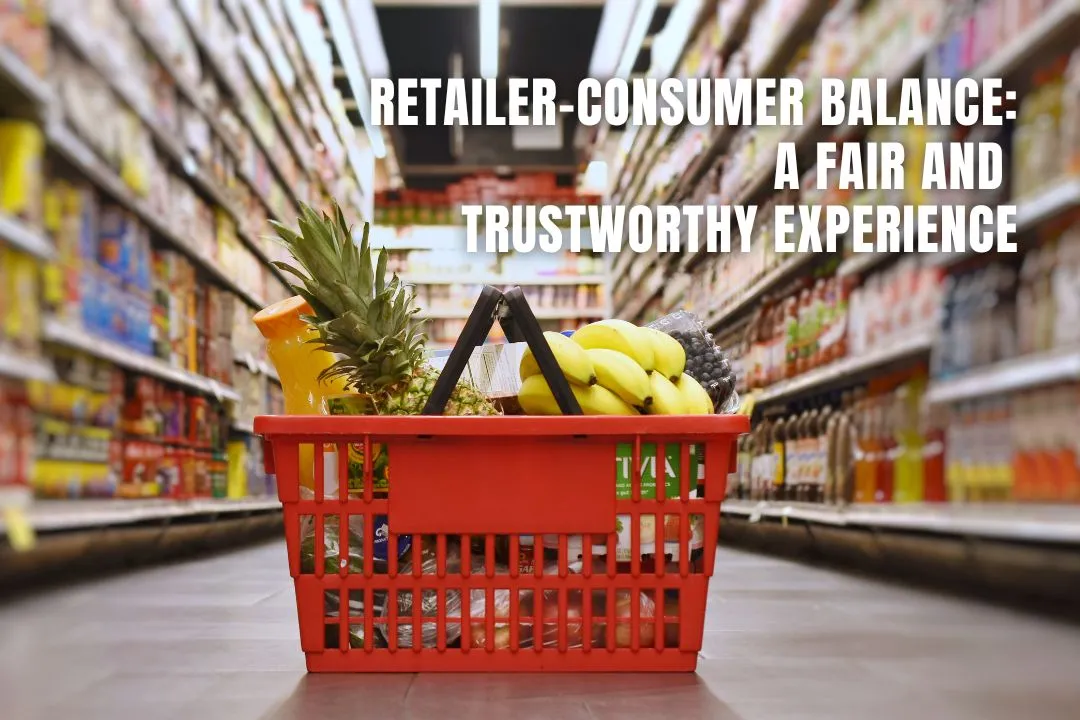Restoring The Retailer-Consumer Balance: Building A Fair And Trustworthy Shopping Experience
November 18, 2024

In the ever-evolving landscape of retail, a balanced relationship between retailers and consumers is essential. However, with rising consumer expectations and the rapid expansion of e-commerce, many retailers struggle to maintain this equilibrium. By re-evaluating practices, incorporating transparency, and prioritizing customer experience, retailers can create a fair and enduring relationship with their customers.
Key Takeaways on Building a Trustworthy Experience
- A Balanced Relationship Builds Loyalty: When retailers treat consumers with fairness and respect, it fosters trust and loyalty, which are key to long-term success.
- Transparency in Pricing is Crucial: Hidden fees or unclear policies can cause frustration. Clear pricing and return policies help consumers feel secure and valued in their shopping experience.
- Responsive Customer Service Drives Trust: Accessible and empathetic customer service is essential for maintaining a balanced relationship. Timely resolutions of issues build confidence and loyalty.
- Data Privacy is a Priority: With growing concerns over data security, retailers must protect customer information through encrypted transactions and transparent data usage policies.
- Consistency Across Touchpoints: Providing consistent, high-quality experiences across all channels—whether online, in-store, or on social media—reinforces trust and customer satisfaction.
- Consumer Feedback is Valuable: Actively seeking and responding to consumer feedback shows that a business values its customers, leading to improvements and stronger relationships.
- Investing in Customer-Centric Policies: Prioritizing customer needs, such as clear policies and secure shopping experiences, is key to restoring and maintaining a healthy retailer-consumer balance.
Register Your LLC
Company Registration
START NOWUnderstanding the Importance of Retailer-Consumer Balance
The relationship between retailers and consumers is a foundational element of business success. When consumers feel valued, heard, and treated fairly, they’re more likely to trust a brand and remain loyal to it. However, issues like unclear policies, lack of transparency, and inconsistent service can tilt this balance and lead to customer dissatisfaction, negative reviews, and reduced sales.
Moreover, the push for rapid delivery, discounts, and the constant drive for innovation can sometimes overshadow customer care. Today’s shoppers are informed and value transparency; they expect a consistent, positive experience that respects their time, needs, and concerns. Restoring this balance involves meeting these expectations.
Key Areas for Restoring Retailer-Consumer Trust
Transparency in Pricing and Policies
A transparent approach to pricing and policies is one of the most effective ways to foster trust with consumers. Hidden fees, unclear policies, and complex membership terms can make customers feel misled, leading to frustration and loss of confidence in the brand. Making return policies easy to understand and accessible, along with transparent warranties, helps consumers feel secure in their purchasing decisions.
Enhancing Customer Service Accessibility
Accessible, responsive customer service is essential for a balanced retailer-consumer relationship. Whether a customer has a question about a product, wants to resolve an issue, or needs support after a purchase, timely and helpful responses make a big difference. Retailers can invest in training customer service teams to be both empathetic and effective in resolving queries.
In some cases, seeking CFO services consulting can be helpful, especially for smaller businesses or startups looking to maximize their resources in customer service. Optimized spending on customer service can ensure that budgets are aligned with providing the best possible support. Investing in effective customer service isn’t just beneficial for consumers; it enhances the brand’s credibility and can ultimately drive greater customer loyalty.
Data Privacy and Secure Shopping
With rising concerns over data security, protecting customer information has become an expectation, not just a courtesy. Shoppers today are more cautious about where they share personal data, and they value businesses that respect their privacy. Retailers can restore balance by implementing robust data protection protocols, including secure payment options, encrypted transactions, and transparent data usage policies.
Prioritizing Consistent and Fair Customer Experiences
Consistency across all customer touchpoints—whether in-store, online, or on social media—is critical to maintaining a strong retailer-consumer balance. Shoppers should experience the same level of quality, care, and support regardless of how they interact with the brand. Training staff, maintaining accurate product descriptions, and ensuring order fulfillment are just a few ways to ensure a positive, consistent experience.
Incorporating Consumer Feedback into Business Practices
Feedback from consumers is a valuable tool for any retailer. Proactively gathering and responding to feedback demonstrates that a company values its customers' opinions. Surveys, product reviews, and customer support follow-ups provide insight into what consumers appreciate and where improvements can be made.
Restoring and maintaining a balanced retailer-consumer relationship requires transparency, customer-focused policies, and a commitment to high standards of service. Investing in tools and prioritizing customer needs builds a strong foundation for long-term loyalty and brand success. With these strategies, retailers can ensure that their customers feel valued and respected, leading to a more balanced and mutually beneficial relationship. To learn more on restoring the balance, look over the infographic below.


